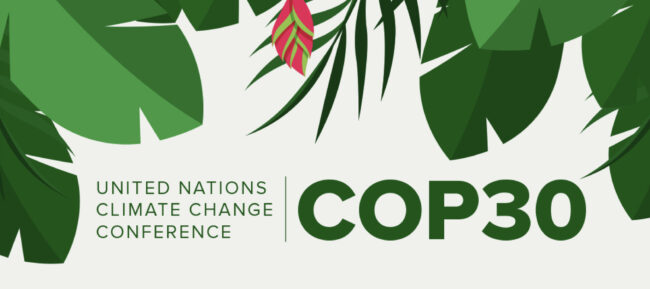
As the world turns its attention to Belém, Brazil, this November, COP30 marks a critical milestone in the global climate agenda. Under the Paris Agreement, signed a decade ago, the third round of Nationally Determined Contributions (NDCs)—i.e., the national climate plans that define each country’s adaptation and mitigation commitments—are now due. According to the agreement, countries must put forward new NDCs every five years, with the idea that each round of commitments must be more ambitious than the last. So far, 62 countries have submitted their NDCs 3.0, but over 60% of the parties have yet to share any new climate actions through 2035.
But this year’s conference takes place in the heart of the Amazon—a region that is characterized by enormous biodiversity and the resilience of its communities leading the way in climate action. With this as backdrop, there’s hope that COP30 will be a decisive space for announcing new targets, tracking progress, and aligning global efforts to avoid more intense climate disasters and protect future generations.
As the first COP hosted in the Amazon, COP30 will likely bring to the forefront discussions on the intersection of climate, nature and justice—according to the Brazilian government, approximately 3,000 Indigenous people will arrive in Belém next month, and 1,000 participants are expected to participate in official negotiations. Issues such as biodiversity conservation, Indigenous communities and climate adaptation will likely take center stage. In that regard, COP30 is not just another summit; it’s an opportunity to translate ideas into transparent, effective and inclusive climate action.
The Amazon’s global significance makes COP30 not only a negotiation space but also a call to action to protect one of the planet’s most vital carbon sinks and cultural treasures, and Brazil’s leadership is already setting the tone on this. The Tropical Forests Forever Facility (TFFF) is a Brazil-led proposal that seeks to unlock innovative financing for preserving tropical forests, with 20% of funds reserved for Indigenous peoples. The mechanism, set to launch at COP30, is intended to raise $25 billion from investor nations and $100 billion from the private sector. Just recently, Brazil’s president announced a $1 billion contribution, reinforcing their commitment to forest conservation.
COP30 is not just another summit; it’s an opportunity to translate ideas into transparent, effective and inclusive climate action.
Experts, students and faculty leaders from the Climate School and the broader Columbia community are attending COP30 to help support a dialogue around ambitious, science-based solutions to the climate crisis, with a goal of informing decisions on energy transition, adaptation and climate finance.
In the lead-up to COP30, the Climate School launched the Countdown to COP30 Series, to create a space for timely discussions around COP. The three-event series is bringing together researchers, students and practitioners to explore the expectations, challenges and reflections from this milestone conference.
JOIN THE CONVERSATION: On Monday, October 27, the second panel in the Countdown to COP30 Series will be held at 4:30pm at the Forum. It will feature experts from Columbia faculty discussing the university’s priorities for COP30; the role of academia in fostering innovative climate solutions; and what needs to happen in Belém to translate global negotiations into meaningful local action.
Check out our infographic for other major COP moments throughout history.


